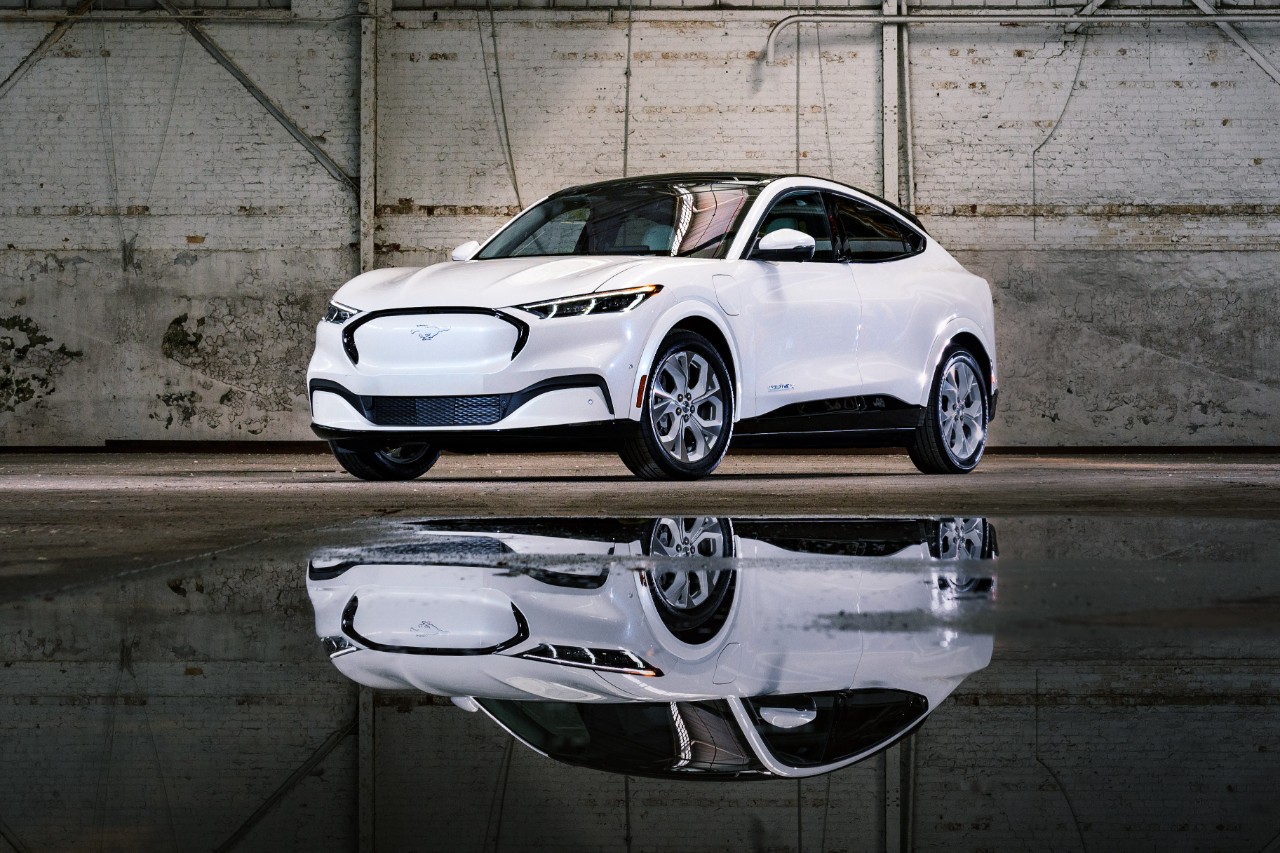
GM still makes the Cadillac Escalade SUV, and it's still big. But it's far more efficient and refined than the Escalades of old. Source: General Motors.
It's the biggest trend in the auto business: SUV sales are booming.
Gasoline may cost more than $3 a gallon, but -- just as we saw a decade ago -- more and more buyers are choosing SUVs over traditional cars.
Part of the reason is practicality: Families with kids find a roomy SUV to be easier to live with than a cramped compact car. Buyers may also like the more upright seating position, and the advantages of all-wheel drive.
But last decade's SUV boom ended badly -- for the Detroit automakers who neglected fuel economy in favor of cranking out ever-bigger SUVs, and for consumers who were stuck with the fuel-chugging behemoths when gas prices jumped and the economy turned sour.
Is this another disaster in the making for companies like Ford (F +0.66%) and General Motors (GM +0.44%)?
These aren't your big brother's SUVs
Probably not.
Investors are always warned to be wary of anyone who says, "It's different this time" -- but it really is different this time, at least in some key ways.
First, these aren't the SUVs of old. While GM and Ford do still make big truck-based SUVs like the Chevy Tahoe and Ford Expedition, those are niche choices in today's market. They're not the big sellers. (And even the Tahoe and Expedition have been reworked. They're safer, more comfortable, and more fuel-efficient than their predecessors.)

Ford's Explorer is still a big seller, but today's Explorer is a more car-like -- and more family friendly -- product. Source: Ford Motor Co.
These days, the big sellers are "crossovers," SUVs based on platforms and architectures shared with car models. Ford's hot-selling Escape (up 19% last month) is a mechanical cousin of its Focus compact, and the current Ford Explorer (up 32% in July) shares a platform with the Taurus sedan.
Even Fiat Chrysler's (NASDAQOTH: FIATY) SUV stalwart Jeep is in on the act: Its hot-selling Cherokee is related to the Dodge Dart and Chrysler 200 sedans.

Even though it's built on a platform that is shared with several Fiat Chrysler sedans, the new Cherokee still brings a measure of Jeep's traditional off-road prowess. Source: Fiat Chrysler.
The fact that many of today's SUVs are built on car architectures means they're lighter in weight and more fuel-efficient than the SUVs of old. It also means they drive and handle more like cars than trucks -- making them more comfortable for many and, arguably, safer.
In fact, they're more like the 21st-century versions of the big station wagons that those of us of a certain age remember from the 1960s and 1970s. They're taller and roomier, and many have all-wheel drive -- but in terms of construction, safety features, fuel efficiency, and handling, they're more like cars than trucks.
But one thing hasn't changed: SUVs are still very profitable products for their makers.
A big boom in earnings thanks to shifting consumer tastes
Ford and GM both reported strong second-quarter results in North America, results attributed at least in part to big SUV sales. GM's big SUVs -- the Chevy Tahoe and Suburban, GMC's Yukon, and the Cadillac Escalade -- are all-new for 2015. Sales of the group are up 16% this year through July. And Jeep has been on an absolute tear: Sales are up a whopping 44% this year through July.
But they're not the only ones. Toyota (TM +4.38%) reported an unexpectedly high second-quarter net profit of $5.7 billion -- thanks to surging SUV sales here in the U.S. BMW (BAMXF 0.70%) saw second-quarter profits surge 26%, thanks in part to a boom in sales for its new X5 SUV, up 30% in the first half of 2014. Volkswagen Group (VLKAY +4.26%) has been making huge profits on high-end SUVs like the Porsche Cayenne. And Subaru has seen sales and profits soar thanks to its crossovers.

The SUV boom is benefiting more than Detroit. Sales of BMW's X5 have surged this year. Source: BMW.
But unlike what we saw with Ford and GM last decade, none of the automakers are dependent on SUV sales. Back then, the Detroit Three neglected to invest in competitive fuel-efficient cars -- and they were caught out when gas prices suddenly rose and buyers turned to Toyota and Honda (HMC +3.40%) instead.
That's what really is different this time. Cars like GM's Chevy Cruze and Ford's Focus and Fusion are competitive, strong-selling models -- and Detroit's much-improved cost structures mean that Ford, GM, and Chrysler can sell those cars at a solid profit nowadays, making them worth continued investment.
Big SUV profits won't last -- but this time, that's OK
It is true that automakers' profits will take a hit if and when the market turns away from SUVs (for whatever reason). SUVs, generally speaking, are more profitable than cars, and selling fewer SUVs and more compact cars will lead to shrinking profit margins.
But I don't think it's fair to say that would be a crisis. Instead, I think we should look at it this way: Automakers like Ford and GM (and Toyota and BMW, and most of the others) are taking advantage of the opportunity offered by the current market with strong, profitable products.
As long as they remember not to put all of their product-development eggs in the SUV-shaped basket, that's a good thing for shareholders.











